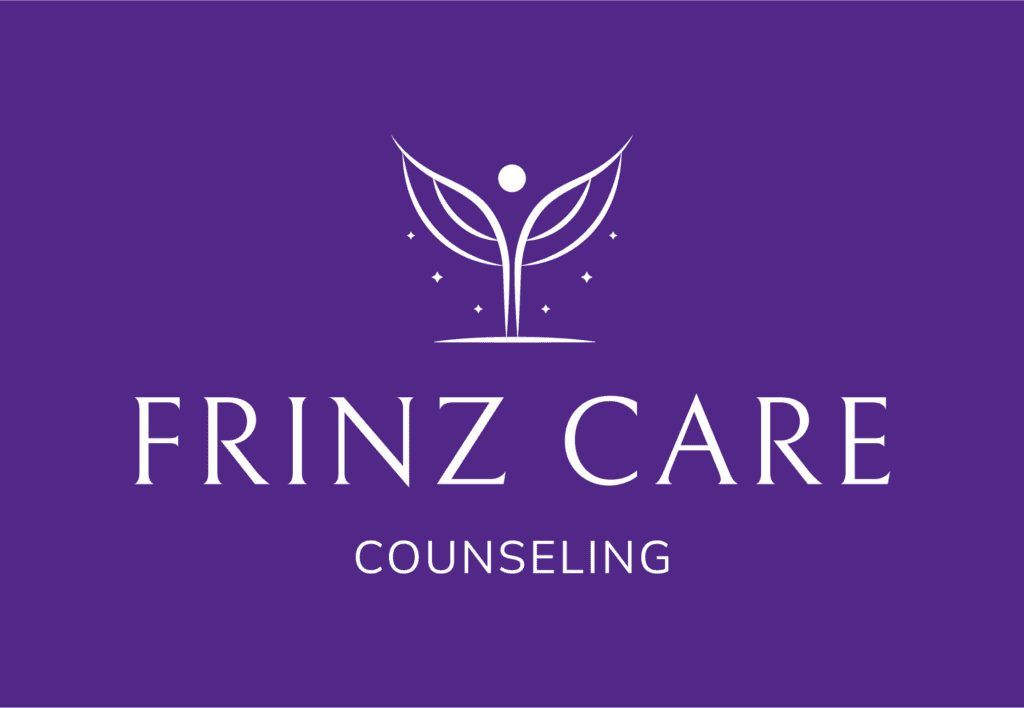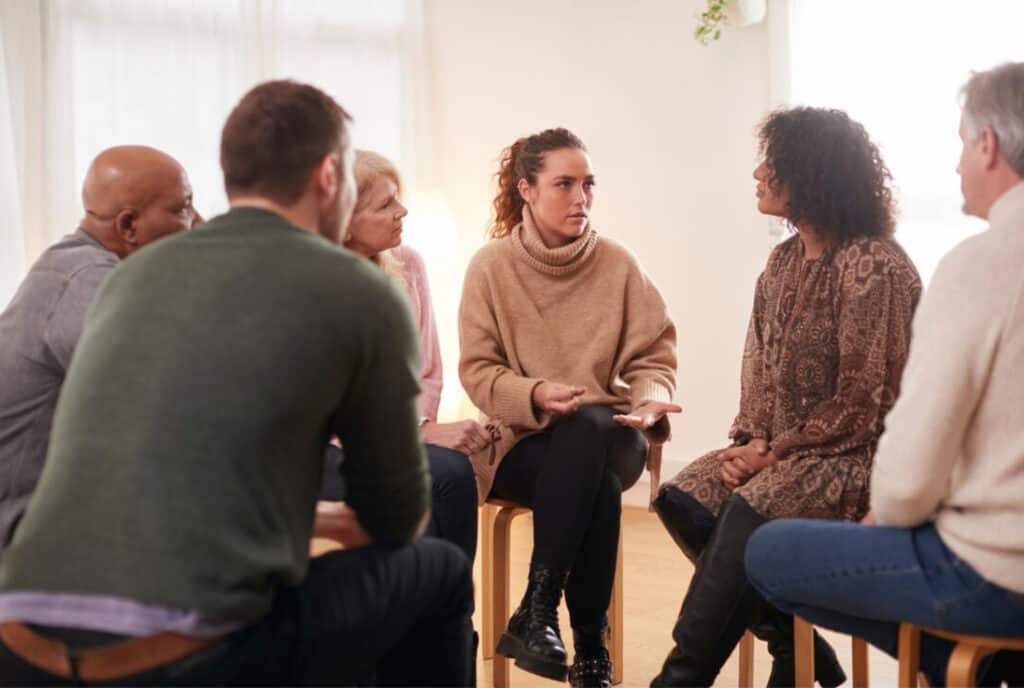How Can a Counseling Group Improve Your Mental Well-being?
Discovering Pathways to Emotional Resilience and Happiness
Mental well-being is the cornerstone of a fulfilling and balanced life, influencing our ability to navigate challenges and savor moments of joy. One avenue for gaining recognition in pursuing emotional resilience and happiness is participation in counseling groups. These groups offer a unique and practical approach to addressing individual struggles within a supportive community. In this exploration, we delve into the transformative potential of counseling groups, uncovering the pathways they pave toward enhanced mental well-being.
What are Counseling Groups?
Counseling groups, or group therapy, are structured gatherings led by trained mental health professionals to provide therapeutic support to individuals facing similar challenges. Counseling groups aim to create a safe and confidential space where participants can openly share their thoughts, feelings, and experiences.
These groups aim to foster mutual understanding, empathy, and a sense of belonging among members. Through guided discussions, activities, and shared insights, counseling groups empower individuals to explore their emotions, develop coping mechanisms, and build a supportive network. This collaborative approach enhances personal growth and contributes to improved mental well-being.
Different Types of Counseling Groups Available
Counseling groups come in various forms, each tailored to address individuals’ specific needs and challenges. These groups provide a supportive environment where participants share experiences and work towards common goals. Here are five different types of counseling groups designed to cater to diverse aspects of mental health and well-being:
- Support Groups: Support groups bring together individuals facing similar issues, such as grief, or chronic illnesses. Participants share their experiences, offer empathy, and provide mutual support, creating a sense of community.
- Psychoeducational Groups: Psychoeducational groups focus on imparting knowledge and skills to participants. These groups aim to educate individuals about specific mental health issues, teach coping strategies, and enhance self-awareness.
- Skill-Building Groups: Skill-building groups concentrate on developing practical life skills, such as communication, stress management, and problem-solving. Participants learn and practice these skills in a group setting to promote personal growth.
- Process-Oriented Groups: Process-oriented groups emphasize self-exploration and understanding through open discussions and reflections. Participants delve into their emotions and interpersonal dynamics, gaining insights into their behavior and relationships.
- Therapeutic Activity Groups: These groups integrated therapeutic activities such as art, music, or movement into the counseling process. Participants engage in creative expressions to facilitate emotional expression and promote healing.
Benefits of Participating in a Counseling Group
Participating in a counseling group can yield many benefits, providing individuals with a unique and impactful approach to enhancing their mental well-being. Here are five key advantages:
- Mutual Support and Understanding: Counseling groups foster a community where individuals with similar challenges can share experiences, empathize, and reduce feelings of isolation through shared understanding.
- Diverse Perspectives and Insights: Group therapy provides individuals with diverse perspectives and coping strategies, enhancing their understanding of their challenges and providing new insights for personal growth.
- Enhanced Social Skills: Group therapy fosters improving interpersonal skills through effective communication, active listening, and conflict resolution, enhancing relationships within and outside the group setting.
- Increased Self-Awareness: Counseling groups foster self-awareness through discussions and reflections, enhancing personal growth and positive change by enhancing understanding of thoughts, emotions, and behaviors.
- Emotional Resilience and Coping Strategies: Counseling groups provide practical coping strategies for managing stress, anxiety, and other emotional challenges, fostering emotional resilience through learning and application within a supportive group setting.
The Role of Group Dynamics
Group dynamics play a pivotal role in the effectiveness of counseling groups, influencing the overall therapeutic experience. The group’s interactions, relationships, and communication patterns create a unique dynamic that shapes individual growth. Shared experiences foster a sense of unity, trust, and mutual understanding, contributing to a supportive atmosphere.
The group dynamic encourages participants to explore emotions, challenge perspectives, and practice interpersonal skills in a safe space. Moreover, witnessing others’ progress and setbacks provides valuable insights, promoting empathy and connection. Ultimately, the positive group dynamic catalyzes personal development, making counseling groups a powerful avenue for improving mental well-being.
Building Emotional Resilience
Building emotional resilience is a central focus of counseling groups, as they provide a structured and supportive environment for individuals to navigate and overcome various challenges. Through group therapy, participants cultivate emotional resilience in several ways:
- Validation of Emotions: Group settings provide a supportive environment for individuals to express and validate their emotions, fostering emotional self-awareness and acceptance.
- Shared Coping Strategies: Counseling groups provide peer-shared coping strategies, enhancing individuals’ ability to manage stress and adversity by learning from their experiences and adapting proven techniques.
- Constructive Feedback and Encouragement: Group members’ constructive feedback and encouragement create a positive atmosphere, boosting confidence, resilience, and a positive outlook on personal challenges.
- Learning from Setbacks: Individuals witness how others navigate setbacks and challenges within the group. Observing resilience in action helps participants reframe their perspectives on adversity, turning setbacks into opportunities for growth.
- Enhanced Problem-Solving Skills: Group dynamics promote collaborative problem-solving, involving discussions, insights, and collective brainstorming to develop practical skills among participants.
Fostering Connection and Social Support
Fostering connection and social support lies at the heart of counseling groups, providing participants with a vital network for emotional well-being. Group therapy cultivates a sense of belonging as individuals share their experiences, creating bonds built on empathy and understanding. The connections forged in these groups extend beyond the sessions, offering a reliable support system in times of need.
By promoting a collaborative atmosphere, counseling groups empower individuals to give and receive support, reinforcing that they are not alone in their struggles. This sense of community enhances overall mental health, fostering resilience and a strengthened capacity to face life’s challenges.
Skill Development and Coping Mechanisms
Participating in counseling groups contributes significantly to skill development and the acquisition of effective coping mechanisms. These groups offer a structured environment for individuals to hone various skills and strategies that enhance their mental well-being:
- Communication Skills: Group therapy promotes open and effective communication, helping participants express themselves, actively listen, and navigate interpersonal dynamics, ultimately improving their communication skills.
- Stress Management Techniques: Counseling groups focus on stress management, involving participants practicing techniques like mindfulness, deep breathing, and time management to develop a personalized resilience toolkit.
- Problem-Solving Abilities: Engaging in group discussions allows individuals to address challenges collaboratively. The problem-solving process within the group context enhances participants’ critical thinking and decision-making skills.
- Emotional Regulation: Counseling groups provide a safe space to explore and regulate emotions. Participants learn to identify and manage intense emotions, reducing the impact of emotional distress on their overall well-being.
- Assertiveness and Boundaries: Counseling groups utilize role-playing and group interactions to enhance assertiveness skills, enabling individuals to set healthy boundaries, express needs, and navigate relationships more effectively.
- Coping Strategies for Specific Challenges: Counseling groups help participants develop coping strategies for specific challenges like grief, or anxiety, providing practical tools for real-life situations.
Professional Guidance in a Group Setting
Professional guidance within a group setting is a cornerstone of influential counseling groups. Trained mental health professionals, often therapists or counselors, facilitate the sessions, providing expertise and structure. Their role involves creating a safe and supportive environment, guiding discussions, and offering insights to promote individual and collective growth.
These professionals bring knowledge to address diverse challenges, ensuring the therapeutic process aligns with ethical standards. In a group setting, their guidance not only fosters personal development but also helps maintain a balance between individual attention and the dynamic interactions that contribute to the overall success of the counseling group.
Overcoming Stigma and Barriers
Overcoming stigma and breaking down barriers to mental health care is a critical aspect of counseling groups. Addressing misconceptions and societal prejudices is essential to fostering an environment where individuals feel comfortable seeking support:
- Educational Initiatives: Counseling groups often use educational methods to dispel misconceptions about mental health, promoting better understanding and reducing stigma among participants and the community.
- Normalizing Help-Seeking Behavior: Counseling groups help individuals combat the stigma surrounding mental health support, normalizing help-seeking behavior and promoting a cultural shift prioritizing mental well-being.
- Encouraging Open Dialogue: Fostering open and honest discussions about mental health in counseling groups can help break down barriers and create an environment where individuals feel heard, understood, and accepted.
- Promoting Diverse Narratives: Sharing diverse counseling group stories challenges stereotypes, showcasing the universality of mental health struggles and the effectiveness of group therapy.
- Community Outreach and Collaboration: Community organizations and leaders can work together to combat stigma, promote mental health awareness, and reduce access to counseling services through collaborative efforts.
Choosing the Right Counseling Group
Choosing the right counseling group is crucial in ensuring that individuals receive the support and guidance that aligns with their specific needs. Here are five key considerations for making an informed decision:
- Identifying Goals and Needs: Individuals should clearly define their goals and needs before selecting a counseling group, as matching these with the group’s focus ensures a more effective and targeted experience.
- Group Size and Dynamics: Understanding the dynamics of a counseling group can help individuals find an environment that suits their comfort level, as some prefer smaller, intimate settings while others thrive in more extensive, diverse groups.
- Facilitator Expertise: Examine the group facilitator’s qualifications and expertise to gauge their experience and training in the relevant area, which can enhance the effectiveness of the counseling group.
- Approach and Techniques: Counseling groups use diverse therapeutic methods, and individuals should assess if these methods align with their personal growth and self-discovery styles.
- Logistics and Accessibility: Choosing a counseling group that is logistically feasible and accessible ensures consistent participation, maximizing the benefits of the experience, considering factors like location, meeting times, and frequency.
In conclusion, the transformative impact of counseling groups on mental well-being is undeniable. Through shared experiences, support, and professional guidance, individuals find pathways to emotional resilience and happiness.
If you’re ready to embark on a journey of self-discovery and growth, consider exploring counseling groups. At Frinz Care, we are committed to providing a safe and supportive environment for your well-being. Reach out to us at keri@frinzcare.com or call 1-737-444-8055. Take the first step towards a healthier, more fulfilling life. Your well-being matters; we’re here to support you on your journey.


